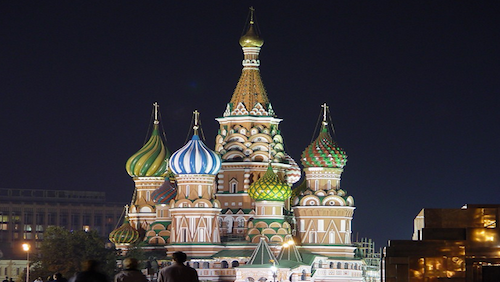 If you’re running an illegal casino in Russia, you better start packing your bags and head out of town. Otherwise, you can be part of a growing list of illegal joints that the Russian police is cracking down on.
If you’re running an illegal casino in Russia, you better start packing your bags and head out of town. Otherwise, you can be part of a growing list of illegal joints that the Russian police is cracking down on.
The Russian authorities are in the middle of a nationwide sweep of closing down illegal casinos in numerous cities, including Moscow, Khimki, and Pushkino. While exact numbers remain murky, numerous news outlets are reporting that 36 illegal casinos have been closed down in the Moscow area with authorities seizing over 440 gambling machines, seven poker tables, 26 more machines accepting cash, and a monetary sum of 1 million rubles, which when converted, is about $33,000.
In addition to Moscow, officials from the country’s Interior Ministry’s Main Economic Security Department pinpointed other cities where illegal casinos were busted, including Shchyolkovo, Korolyov, Podolsk, Balashikha, Reutov, Mozhaisk, Noginsk and Ivanteyevka. Most of these casinos operated under the guise of different establishments, often posing as restaurants and Internet cafes. While these businesses were deemed legitimate, they often served as fronts for where all the illegal gambling was taking place.
Russia has had a long-standing ban on casinos in its country, a ban that has played a great role in giving birth to a lucrative underground gambling industry. This isn’t really surprising because the harder the country tries to impose its ban on casinos, more and more of these establishments are probably going to sprout up in the future. Even more perplexing were the recent adopted amendments made by Russian lawmakers who basically supported the rationale that “gambling addiction” was a legal basis for curtailing the way gamblers live their lives. According to authorities, “Incompetent” is how these individuals are being described and anybody who puts their family into difficult financial situations will be placed under guardianship, essentially cutting off their rights and putting them in the hands of another person who will be responsible for getting the person’s finances in order.
Yet for all the supposed anti-casino and anti-gambling sentiments coming from the Russian ups, the country still has plans to build a casino zone in the city of Vladivostok located in the far eastern Primorsky Territory. But those plans have yielded minimal interest from international casino groups with only five companies, including foreign operators Global Gaming Asset Management and NagaCorp – filing applications last October. That number was a far cry from the 17 slots that was being touted will occupy the casino zone, in large part because of the rather obscure location of the proposed zone.
The irony isn’t lost on us; a country doing its best to curtail illegal casinos and strike fear in the hearts of what they loosely define as problem gamblers wants to build a casino zone in the country.
Maybe if they loosen up all their restrictions, you’d have a semblance of structure on how to properly regulate the industry in such a way where illegal casinos wouldn’t exist because, well, they won’t be illegal anymore.
Otherwise, the problem of “illegal” casinos won’t likely go away anytime soon.






